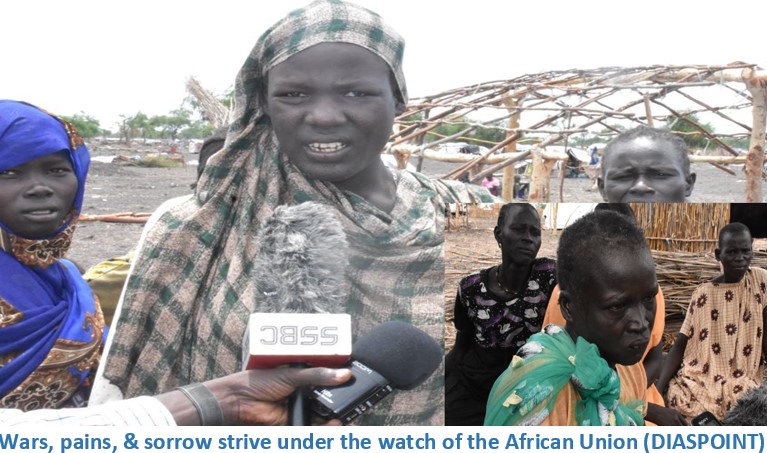The agony of women torn off from their families by Sudan’s war
Post By Diaspoint | June 20, 2023

Mary Akuch Nyibek has known Panakuach-Payinga to be her home for days now since the war engulfed the Sudanese capital, Sudan. A flashback of three months into her life would usher one into a life of hooting cars, starry streets, and, most importantly, the warmth of the receptive family that completes the social equation. But all this is gone. She is now resigned to solitude, where she is forced to ask hard questions with no immediate answers about where to begin or go from here.
Nyibek, 36, hails from Koch in Unity State, and her husband, with whom she has six children, comes from Ruweng Administrative Area. The couple found refuge in Khartoum after war broke out in Malakal, Upper Nile State, in 2013, and now they are facing a similar fate.
At the time that The City Review caught up with her at Rotriak Payam in Unity State, Nyibek was one of the over 2,000 refugees and returnees who fled the violence to seek refuge back at home.
Nyibek’s world started turning upside down on April 15, 2023, when the military forces allied to Gen. Abdel Fattah Al-Burhan clashed with the Rapid Support Forces, the paramilitary wing allied to Gen. Mohamed Hamdan Dagalo, after they disagreed over the integration of the forces.
“It was terrible. Guns were all over. We cried for our lives, and tears finished from our eyes,” she recalls, adding that the movement of civilians was completely curtailed.
At the time the war was breaking out, she was employed as a housekeeper at Hai while her children stayed at Hai Yusif with her husband. What separated them were a few kilometres, but that would prove so costly after the war.
Nyibek recalls an action-movie-like situation of danger with gunshots taking siege of the city, and she could not risk uniting with her family. She had to save her life.
“I did have a phone and heard on the radio that Hai Yusif was now a war zone. I crossed to Kalacklack to save my own life, and indeed I got some vehicles crossing to the side of South Sudan, and finally, I found myself here in Panakuach,” she narrates, as she chokes in sadness.
“Till now, I do not know where my children and husband are. I do not have communication with them because when I ran, I did not know where I threw my phone due to fear.”
So traumatising was the situation that she says she could not salvage any property of her own to bring to South Sudan.
Read More from original source
